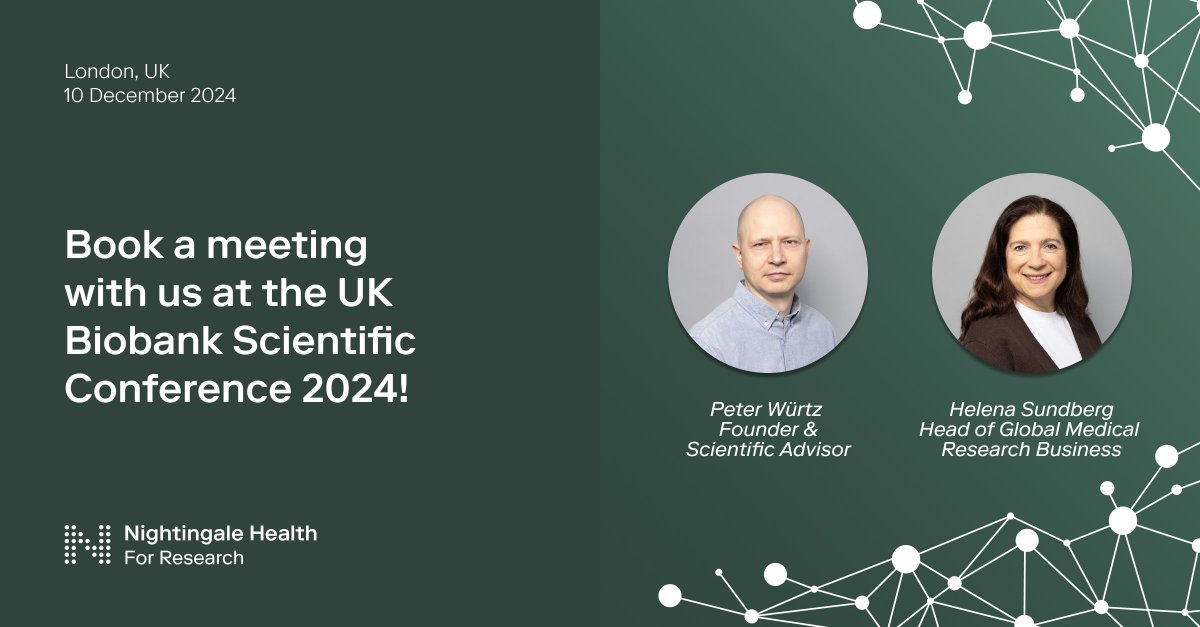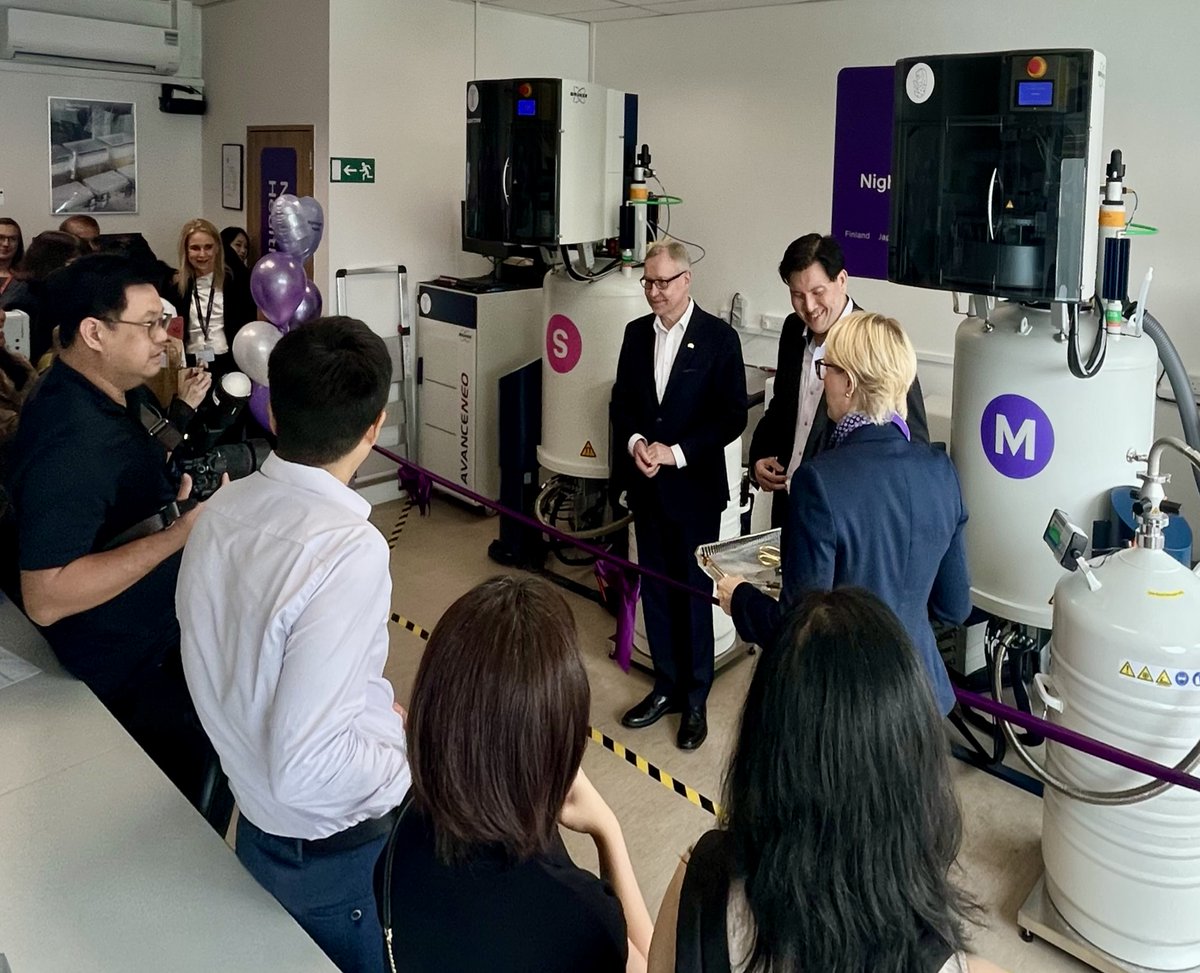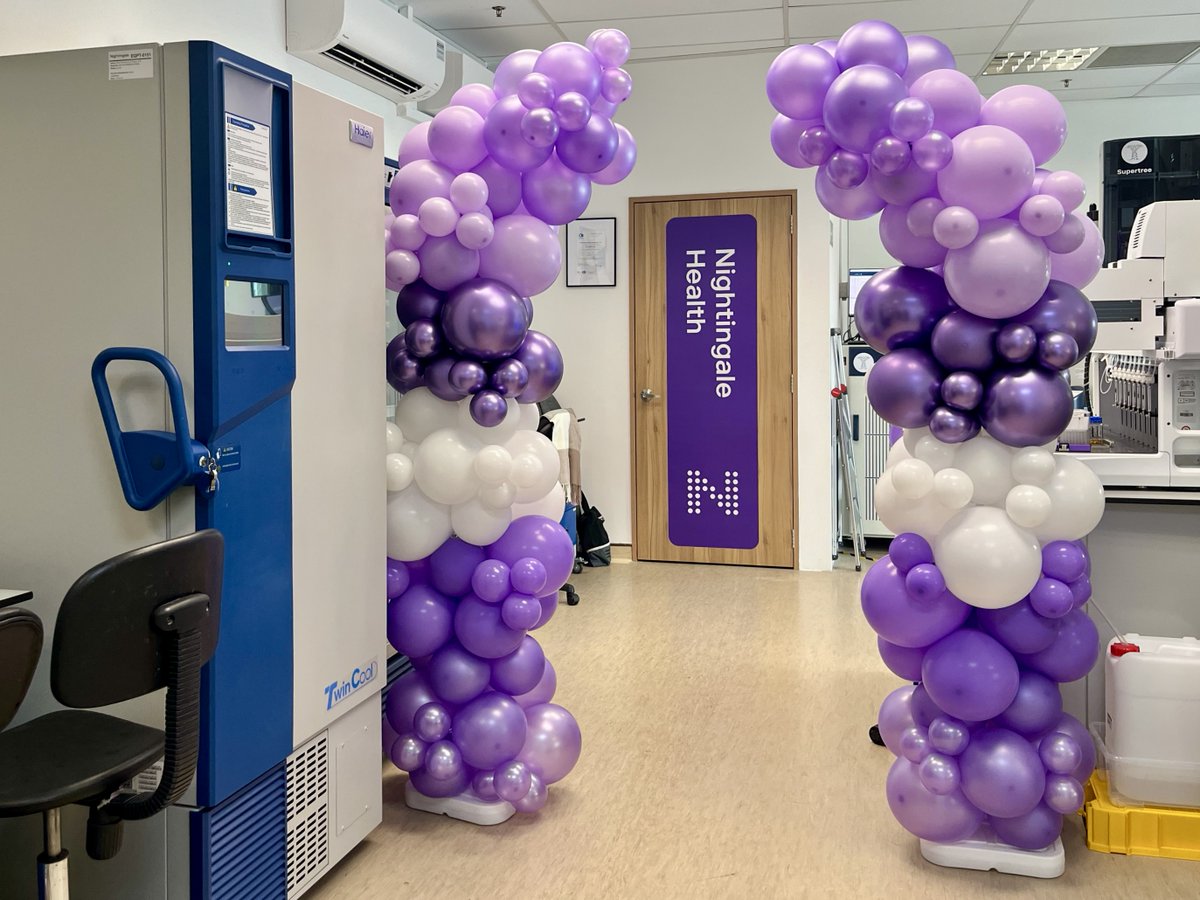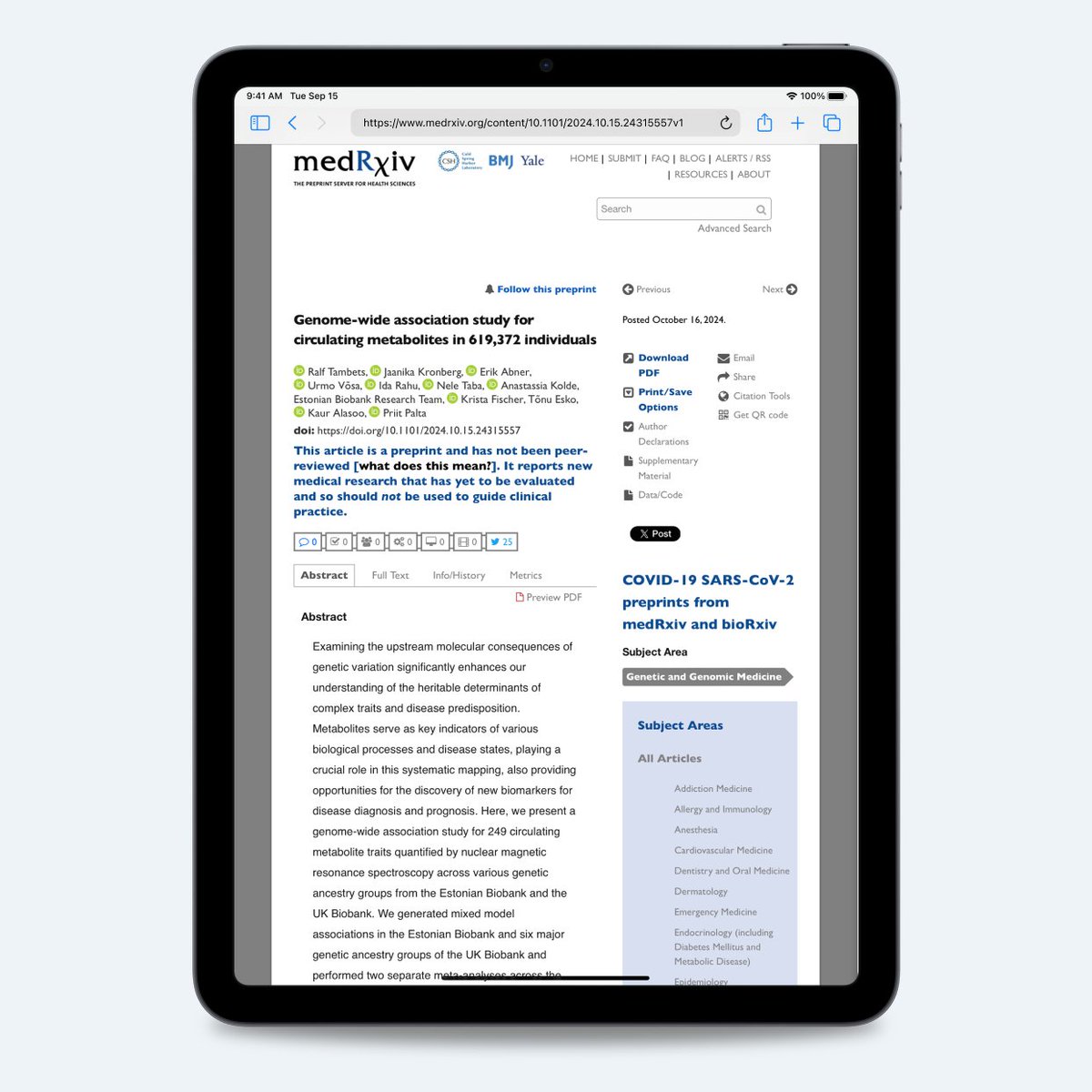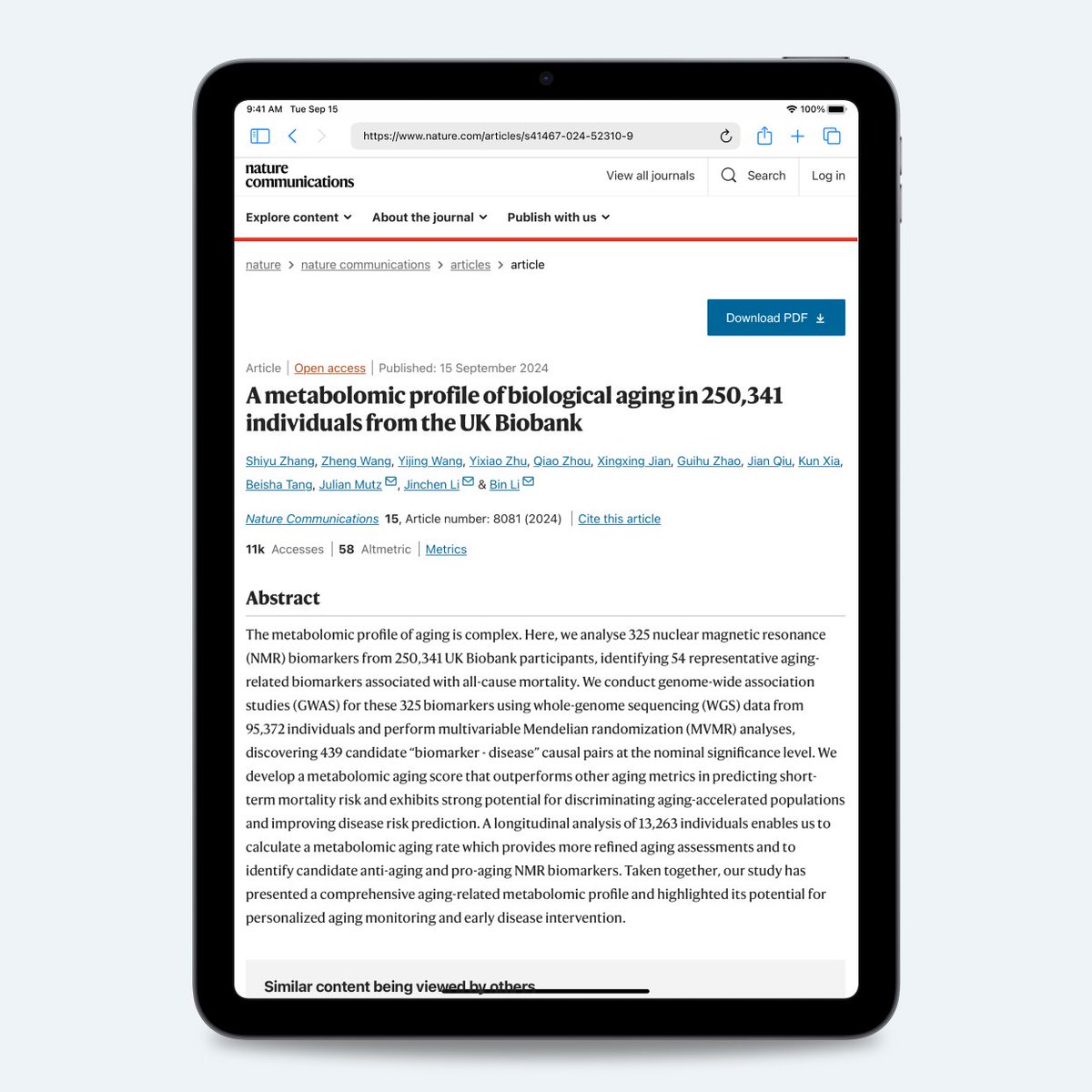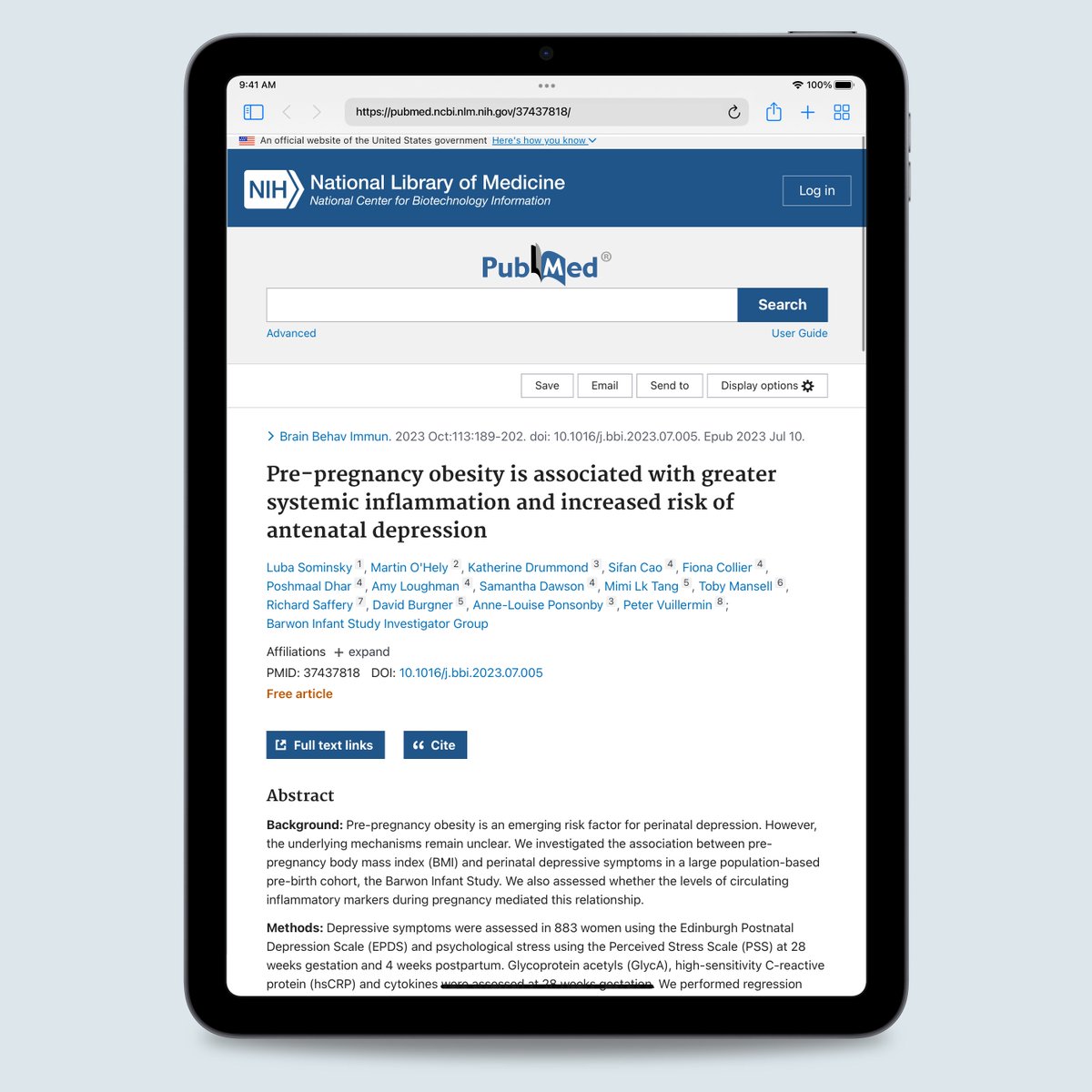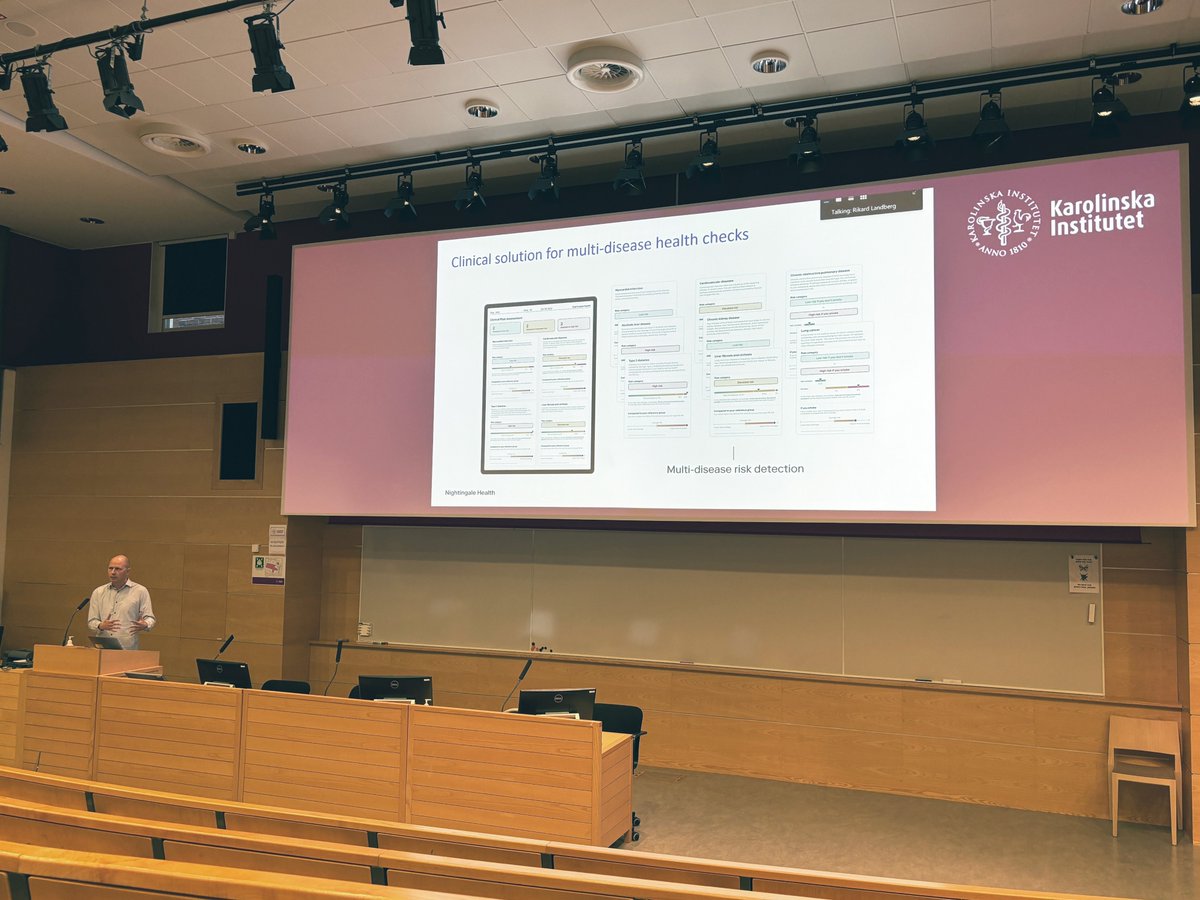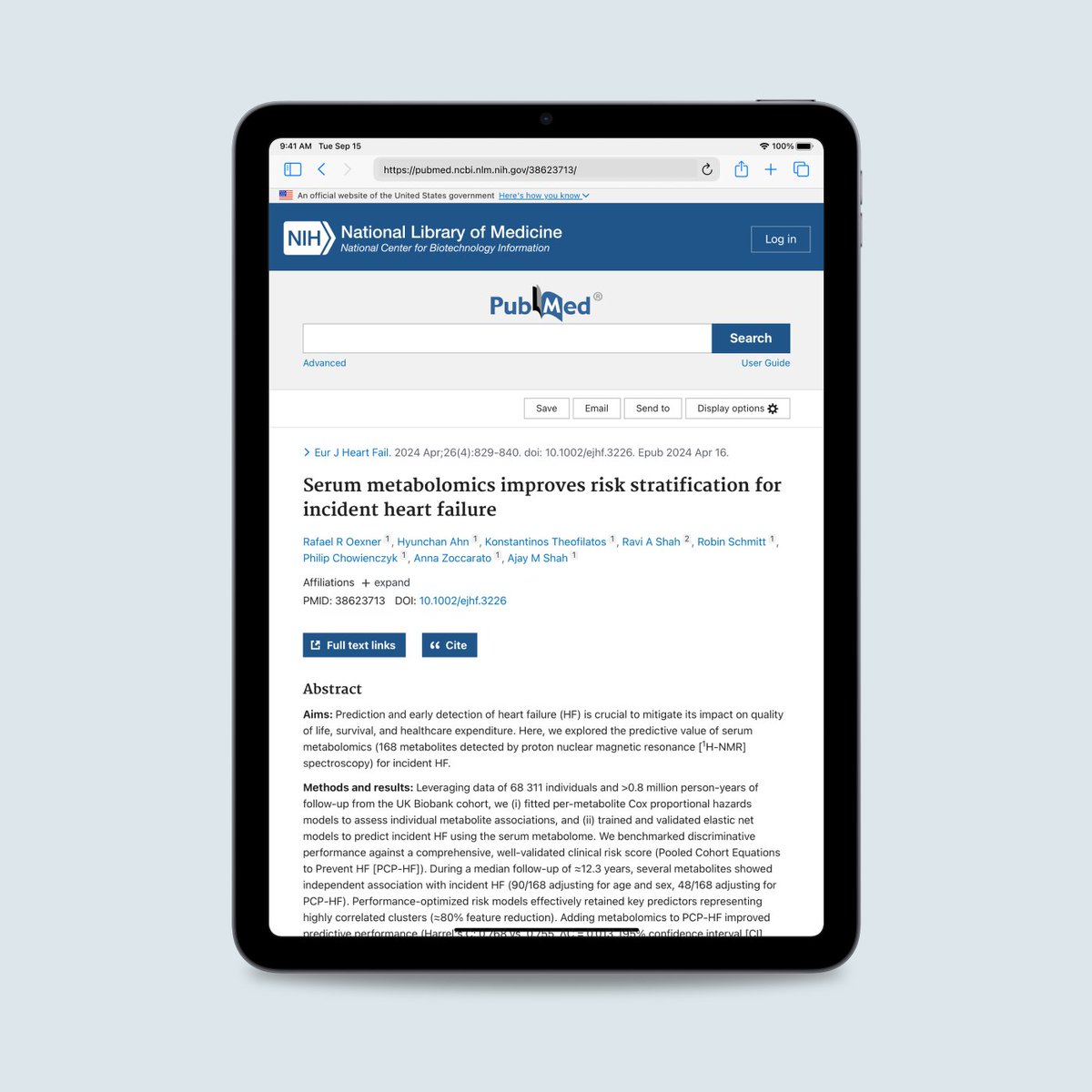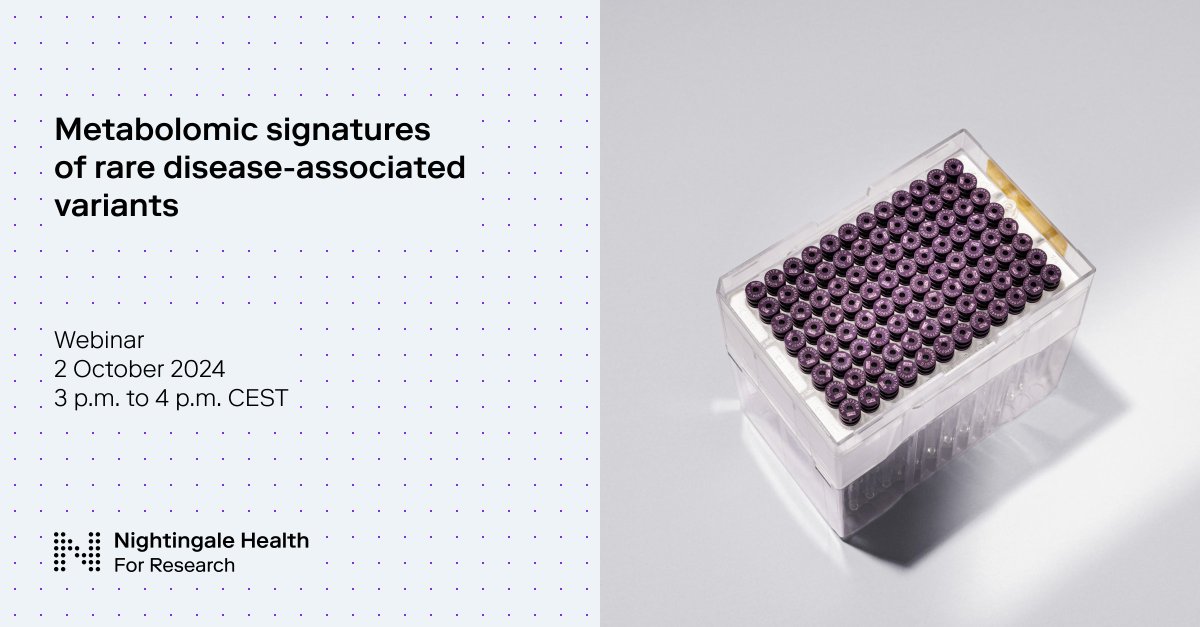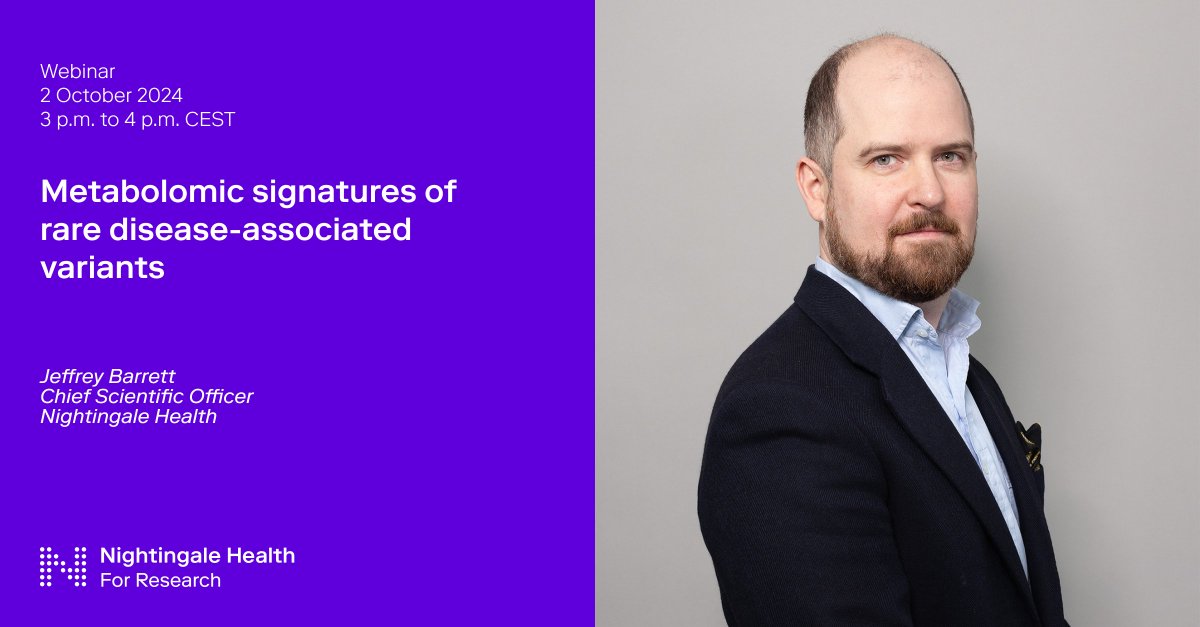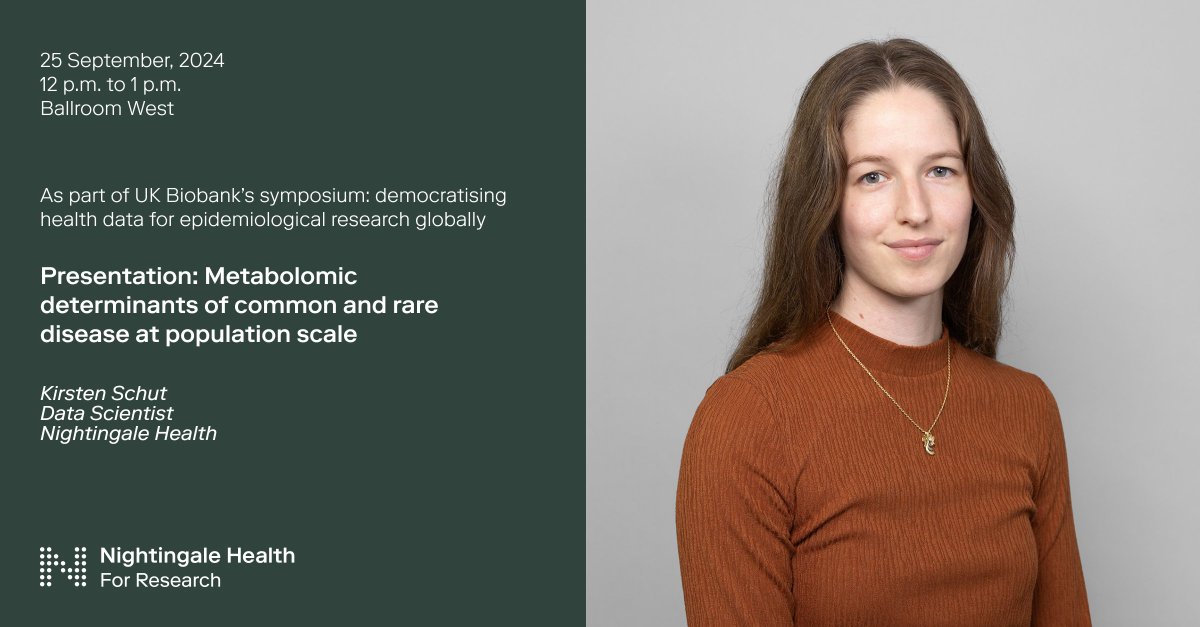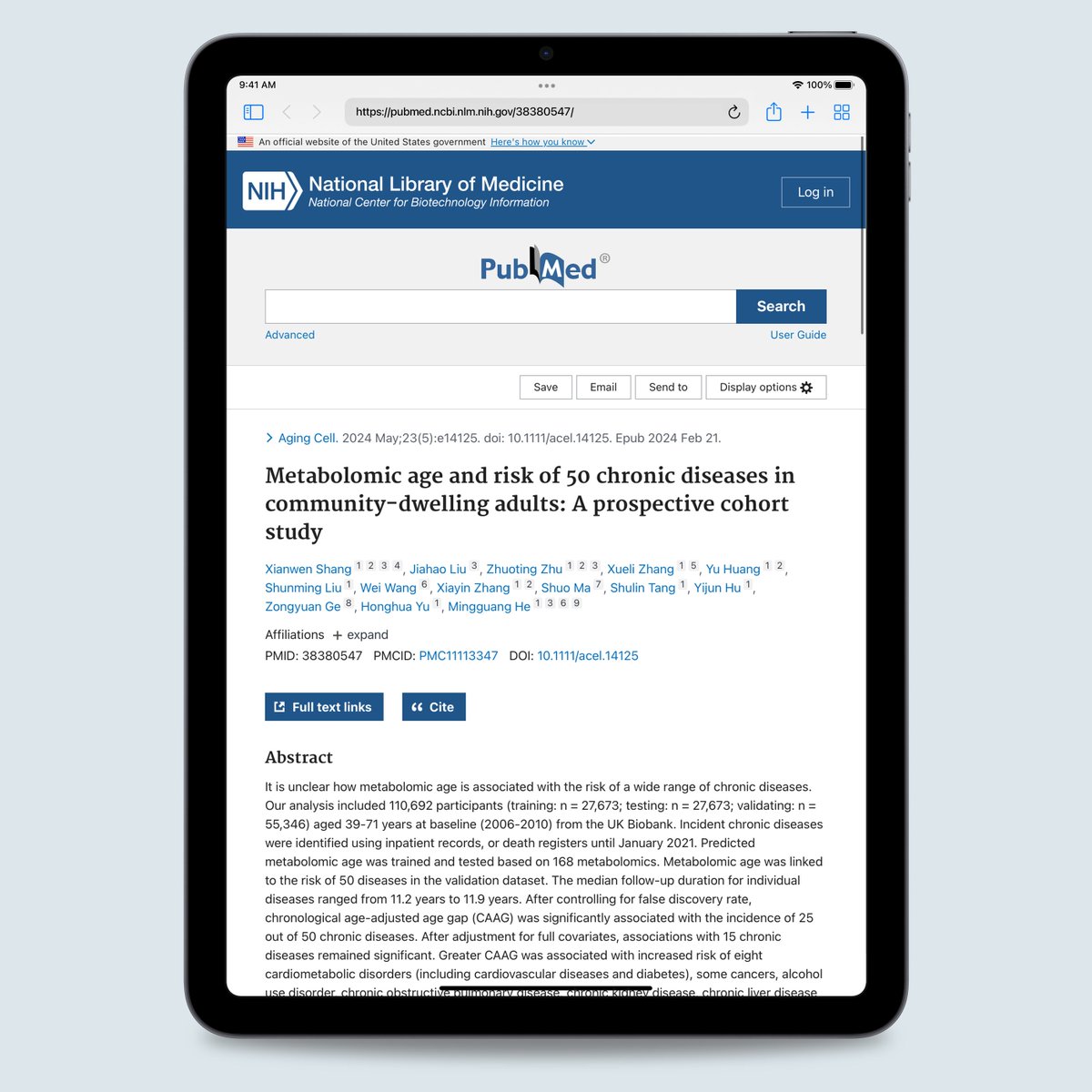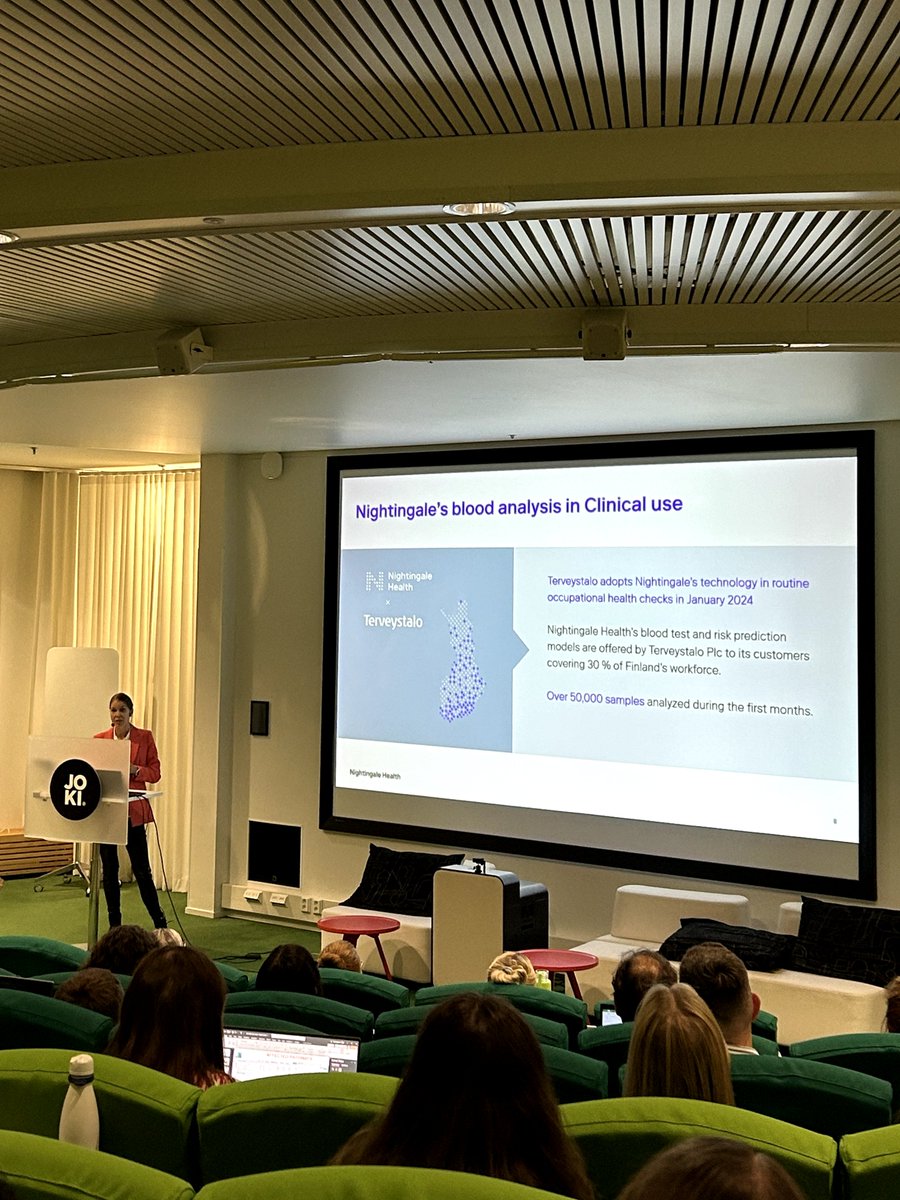
Nightingale Health
@NgaleHealth
Followers
5K
Following
9K
Statuses
3K
Fuelling world-leading research and bringing preventative health tools for everyone. Comprehensive health insights from a single blood sample.
Helsinki, Finland
Joined February 2015
Are you attending the @uk_biobank Scientific Conference in London on December 10? Nightingale Health has completed the analysis of all 500,000 UK Biobank samples creating the world’s largest blood biomarker database for chronic disease research and prevention. Our Founder & Scientific Advisor, Peter Würtz, and Head of Global Medical Research Business, Helena Sundberg, will be at the event and would love to connect with you and tell more! Book a meeting to discuss more: research@nightingalehealth.com
0
1
5
Today, we had the the opening ceremony of our Singapore laboratory. The laboratory is now ready to serve healthcare and medical research customers in the Southeast Asia region. “With the laboratory set up completed, we can now focus on our sales activities at full speed together with our partner Innoquest Diagnostics and we are expecting the first healthcare samples to the lab in the first quarter of 2025” Satu Saksman, COO and Co-founder, Nightingale Health. Thank you everyone who joined the event to celebrate with us! 💜 Read more about the opening of our Singapore laboratory:
0
0
9
Welcome to our webinar “Prediction of type 2 diabetes complications using metabolomic profiles” on 4 December at 11 a.m. EST! Join us for a session on the potential of metabolomic data from the UK Biobank cohort, focusing specifically on individuals with type 2 diabetes. In this webinar, our Data Scientist, Kirsten Schut, will highlight how metabolomic profiles not only predict diabetes onset but also reveal insights into the progression of diabetes-related complications and mortality. Learn more and sign up:
0
0
3
💡 New research highlight combines the data analyzed by Nightingale Health in @ESTbiobank and @uk_biobank: unlocking genetic links to metabolite traits in a groundbreaking genome-wide association study! Researchers in a recently published pre-print have conducted a comprehensive genome-wide association study (GWAS) on 249 circulating metabolite traits in over 619,000 individuals from the Estonian and UK Biobanks. The study identified 89,489 locus-metabolite pairs, of which 4,184 are novel associations. Importantly, 12.4% of lead variants were rare, highlighting the need to study low-frequency variants in metabolic biomarker research. This resource is a major step forward in understanding genetic contributions to disease risk and drug target discovery. Access the full preprint:
0
5
12
We are looking for a Data Scientist in Oxford, UK! 🇬🇧🔬 Become a part of our team enabling our blood testing technology that has the potential to change the health of billions of people. Read below, why our Health Insight team member, Principal Scientist @lukejostins enjoys working at Nightingale Health: 💬 "The Health Insights team is large enough to cover a range of expertise, small enough that you can understand all the projects each team member is working on, and flat enough in structure to make for a real collaborative environment where everyone mucks in, helps each other out and gives feedback and code reviews on each other's work. I have really enjoyed the variety of working styles in this job. Some weeks you might be working closely in a small team to achieve a shared high-priority goal (like when we are deploying a new model or analysing a big new dataset). Sometimes you will be squirrelling away for days on a solo idea before you share it with the group. And this all changes depending on what the team needs. I think the work Health Insights team does is absolutely core to the success of Nightingale Health's mission. I believe our company has two technological hearts – one of them is our metabolomics technology, and the other is our data. Our vast datasets act as the vats that brew basic science into the models, algorithms and results that can help patients." Find out more about the open position and apply: We look forward to hearing from you! 💜
0
2
5
Are you coming to @American_Heart Scientific Sessions 2024 on November 16-18? Come meet our team at booth 1920 and hear more about Nightingale Health’s affordable metabolomics and scalable remote blood collection.
0
0
3
💡 New in aging research: insights into the metabolic profile of biological aging from the UK Biobank data analyzed by Nightingale Health A recent study published in Nature Communications analyzed the metabolomic profile of aging in 250,341 participants from the UK Biobank, identifying 54 key aging-related biomarkers linked to all-cause mortality and multiple age-related health outcomes. The study used data from the UK Biobank’s metabolomic data set analyzed by Nightingale Health. Researchers developed a metabolomic aging score that predicts short-term mortality risk more accurately than existing metrics and than chronological age itself. Additionally, they leveraged a subset of the UK Biobank with metabolomic data measured at multiple time points to derive individuals’ aging rates, showing that a faster aging rate is associated with higher mortality risk. This groundbreaking work has huge implications for personalized monitoring of aging and early disease intervention. Read the full publication: Learn more about the UK Biobank data analyzed by Nightingale Health:
0
3
7
Are you coming to @GeneticsSociety Annual Meeting 2024 next week on November 5-9? We'll have a talk by our Chief Scientific Officer @jcbarret and a poster by our Principal Scientist @lukejostins. You can also meet Nightingale team at our booth 322. Learn more:
0
1
7
Maternal health research highlight: Recent study links pre-pregnancy obesity to increased inflammation and depression risk Recent research from the pre-birth cohort Barwon Infant Study reveals that pre-pregnancy obesity is not only a risk factor for depression during pregnancy but also correlates with heightened inflammation. The study included 883 women and analyzed their depressive symptoms and stress levels during and after pregnancy. Key findings: 💡 For each kg/m2 increase in pre-pregnancy BMI, the risk of depression during pregnancy rises. 💡 Elevated levels of several inflammatory biomarkers, like GlycA and IL-6, were noted in women with obesity. GlycA was analyzed for 704 out of 883 women in the study using Nightingale Health’s blood analysis service. 💡 While these inflammatory markers showed a connection to depression and stress, their exact role in linking obesity to depression requires further study. Access the publication:
0
1
4
Last week, we had the pleasure of attending a seminar on metabolomics and microsampling, hosted by @scilifelab and @SocietyNordic at @karolinskainst in Stockholm. Our Founder @PeterWyrtz introduced Nightingale Health's end-to-end remote blood collection solution, RemoteOmics. RemoteOmics includes blood-collection device, accessories, and return pouch, and provides data for a full metabolic profile. Thank you all for the great event! Learn more about RemoteOmics by Nightingale Health from our website:
0
2
7
Cardiovascular research highlight: Metabolomics improves risk stratification for incident heart failure A study published in European Journal of Heart Failure explored the predictive value of metabolomics for incident heart failure using 68,311 individuals from the UK Biobank cohort. Researchers analyzed 168 metabolites from Nightingale Health’s nuclear magnetic resonance spectroscopy platform and assessed their association with heart failure over a median of 12.3 years of follow-up. They used Cox proportional hazards models and elastic net models to compute individual biomarker associations and predict heart failure, benchmarking results against the clinical risk score PCP-HF. Models with only age, sex and metabolomics performed nearly as well as PCP-HF and incorporating metabolomics into the PCP-HF model improved predictive performance. The study highlights the potential of metabolomics as a cost-effective and scalable screening tool for heart failure. Access the publication: Nightingale Health for Research Measuring 250 biomarkers in every sample provides the freedom to explore every research question in the UK Biobank data. Explore CoreMetabolomics by Nightingale Health:
0
2
5
Our webinar “Metabolomic signatures of rare disease-associated variants” by @jcbarret is tomorrow! Remember to sign up and join us on 2 October at 3 p.m. CEST. Learn more about the webinar and sign up:
0
1
3
Welcome to our webinar “Metabolomic signatures of rare disease-associated variants” on 2 October at 3 p.m. CEST! In this webinar, our Chief Scientific Officer @jcbarret will show how metabolomics data from 500,000 people in the UK Biobank can help understand rare genetic variants and their impact on human diseases. Learn more and sign up:
0
1
6
New in ageing research: the role of metabolomic age in chronic disease risk A recent study by Shang et al. published in Aging Cell explored how metabolomic age associates with the risk of a wide range of chronic diseases including cardiovascular disease, chronic obstructive pulmonary disease (COPD) and chronic kidney disease. An individual’s metabolomic age is estimated using their metabolomic profile. Metabolomic age can be used to differentiate between individuals with the same chronological age (i.e., what we normally consider someone’s age to be), but distinct biological health conditions. By subtracting chronological from metabolomic age, the authors established the gap between the two, and assessed whether this difference was associated with disease outcomes. The study included data from over 110,000 participants from the UK Biobank, for which the onset of chronic diseases was ascertained using hospital and death records. The authors identified significant associations between the age gap and the incidence of various chronic diseases. 💡 Key findings: - A greater age gap (i.e., having a higher metabolomic age than chronological age) was linked to increased risk of eight cardiometabolic disorders, certain cancers, and other conditions like COPD, chronic kidney and liver diseases, and age-related macular degeneration. - Many of the associations were weaker when they were evaluated only within individuals who were considered to have a healthy diet, indicating that a healthy diet may be able to reduce the disease risks related to a high metabolomic age. This research underscores the importance of metabolomic age as a factor in multiple chronic diseases and suggests potential strategies for risk prevention. All in all, tracking someone’s metabolomic age can add valuable information on top of chronological age in predicting the onset of disease. Access the full publication:
0
0
2
Greetings from Turku! This week, we had the pleasure of participating in the fourth Nordic Metabolomics Conference, where our Senior Data Scientist, Sini Kerminen, had an insightful presentation about Population-scale metabolomics from blood and urine. We also had an unforgettable time during our side event, sailing in the Turku archipelago at sunset. Thank you for the interesting discussions both during our evening sail and at the conference!
0
0
2
Are you coming to ESC Congress 2024 on August 30 - September 2? We'll have a talk and a poster by our Chief Scientific Officer @jcbarret. You can also meet Nightingale team at our booth G490. Learn more:
0
1
3
New pre-print published features RemoteOmics by Nightingale Health for remote sample collection and blood sample analysis A dietary intervention trial called BIOME conducted by Zoe Ltd was one of the research studies to take advantage of Nightingale Health’s remote sample collection service. The trial examined how a diverse high-fibre plant-based dietary intervention impacts the composition of the gut microbiome, as well as gut symptoms, energy and hunger. The blood biomarkers in focus included lipids and the inflammatory biomarker GlycA measured from Nightingale’s self-collection kit. The study participants consisted of 399 healthy adults in the United Kingdom. Access the pre-print: RemoteOmics by Nightingale Health offers end-to-end solution for participant friendly remote sampling for research. Geographical and logistic limitations constrain many study designs. These limitations cause challenges in attracting participants, limit possibilities in sample collection, and create substantial costs. Our remote blood sample collection solution, where participants can draw their own sample from a fingerprick, creates substantial flexibility allowing study designs that have not been possible before while keeping costs under control. Learn more:
0
1
8

